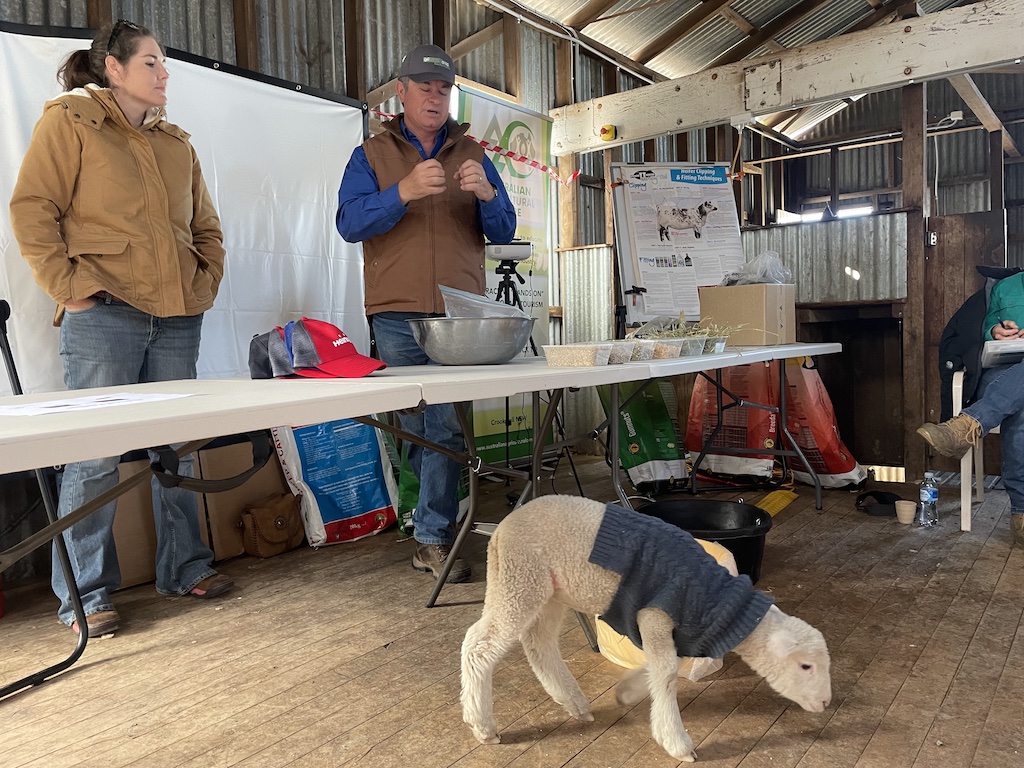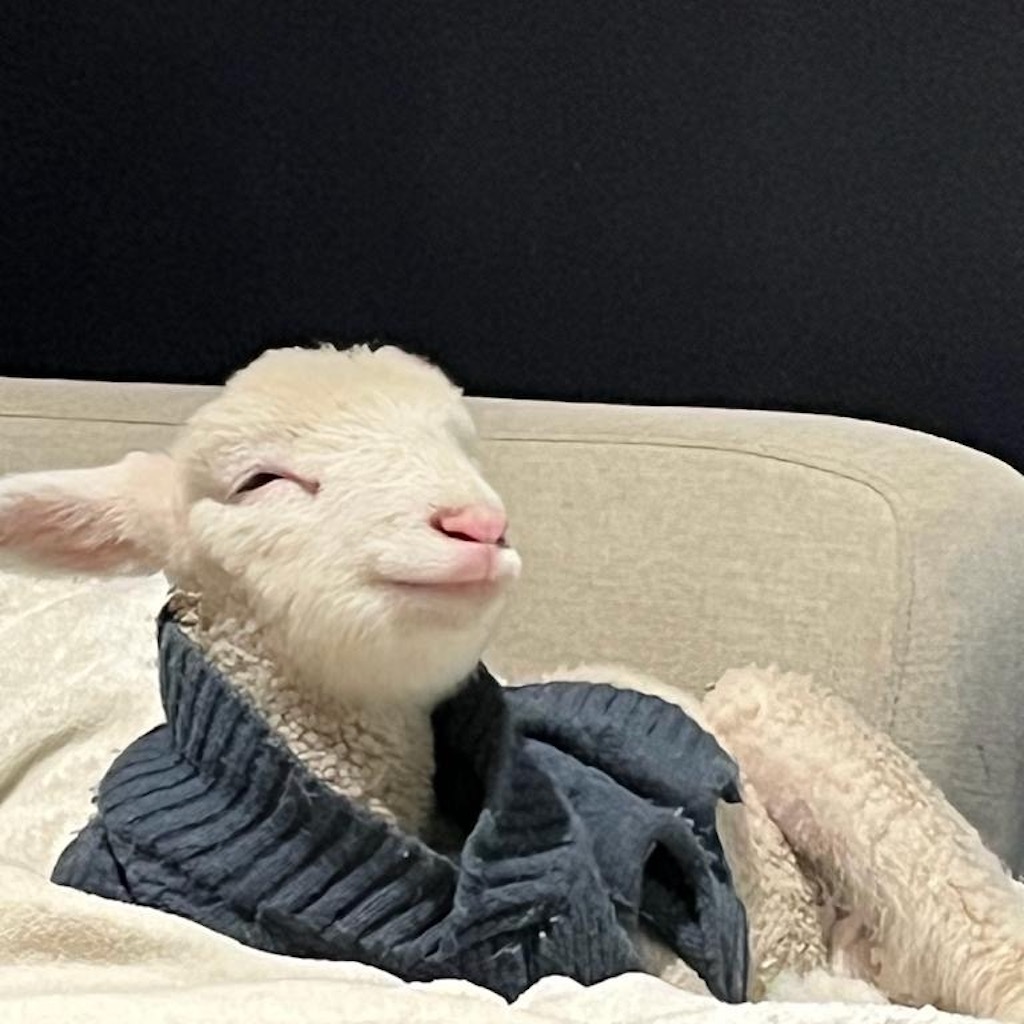
Showing zero interest in Nicole and Tony Starr presenting a cattle workshop at the Australian Agricultural Centre near Crookwell last year, Lily the poddy lamb nonetheless made an impact on students attending innovative courses at the centre. Photo: Clare McCabe.
Generally focussed on dollars and cents, agriculture has no room for sentimentality – except when an orphaned little lamb helps young people learn about rural industries.
Over the last few months of 2023 at the Australian Agricultural Centre (AAC), a poddy lamb called Lily provided students with motivation, companionship and stress relief.
The centre’s chief executive Jo Marshall said Lily had stolen the hearts of many who visited the property ‘Wharekarori’ where the AAC, a demonstration farm, has operated for more than two and a half years. Lily could be found accompanying Jo everywhere, and the little lamb had even learned her name.
Lily was becoming an important part of the teaching team but unfortunately, as happens with the challenge of raising poddy lambs, she died.
Having made a lasting impression, Lily won’t be forgotten, as Jo is preparing for a new poddy lamb to carry on the numerous benefits of having a companion animal.
An off-campus facility for universities, TAFE colleges and high schools, the AAC will be hosting its annual Youth Ag Activation course from 22 January with TAFE NSW, funded by the Foundation for Rural and Regional Renewal for over 15s seeking work in the agricultural sector.
In March, Astronomical Agriculture will focus on carbon in agriculture and each student who attends will be planting a tree.
In the busy schedule ahead, room will be made for a companion animal following Lily’s profound impact. People who visited pet and fed her, and she was an “icebreaker” for anyone who hadn’t been around livestock. Lily was similar to a therapy or assistance animal, providing that little bit of extra comfort or support to students experiencing difficulties in learning, or adjusting to time away from their guardians.
“The primary school programs at the AAC may be attended by special needs students, or students who have had injuries, anxiety, or it is their first overnight stay away from home, and they needed extra comfort,” Jo said. “As well as providing comfort, Lily was able to break the ice for otherwise disengaged students.”
With the right support many of those students will join the next generation of people to enter, build and promote agriculture and agricultural activity.

Lily stole the hearts of everyone and will be followed by more of her kind to help newcomers on their learning journey. Photo: Clare McCabe.
A 2022 Australia-wide survey conducted by Animal Medicines Australia found that more than 85 per cent of companion animal owners reported that their animals positively impacted their lives and were promoters of human health.
They can be used for animal-assisted therapy to help people with mental illness, autism, and developmental disorders, as well as emotional work, practical work and biographical work, according to a report by the RSPCA.
In young people, the presence of a companion animal can fulfil attachment needs, ease anxiety and loneliness, improve self-esteem, facilitate emotional regulation, help build resilience and foster empathy, says the RSPCA. The presence of a companion animal has been associated with improved learning outcomes as animals may stimulate curiosity, reduce stress, and provide a source of non-judgemental and unconditional support.
Educational facilities are not alone in using companion animals to support mental health; in courtrooms, courthouse facility dogs are used to support vulnerable witnesses and victims of crime. This is already occurring in the United States, Canada and Chile. However, it wasn’t until 2017 that an Australian court decided to allow a dog – as a disability assistance animal – into the courtroom.
Jo described Lily as unique: “She had a special personality, making teenagers and adults weak at the knees.”
Original Article published by John Thistleton on About Regional.












